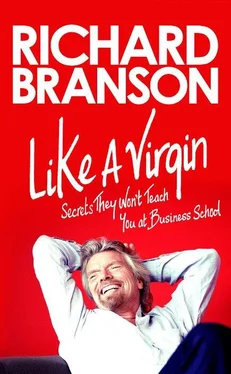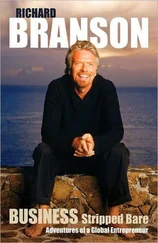If you are thinking about entering this sector, try to evaluate where the structural opportunities may lie in your region. There should be openings in nearly every market: the International Energy Agency estimates that global energy consumption will increase by almost 40 per cent over the next twenty years; to meet global demand through 2035, our society will need to make $33 trillion in investments in energy-supply infrastructure.
Major oil producers argue that there is enough oil to meet these needs for many years, but even if that is so – and it’s very questionable – climate-change considerations and concerns about the political stability of oil-producing nations mean that government officials around the world need to turn to other options. Before the 2011 tsunami that damaged nuclear power stations in Japan, nuclear power was thought by many to be the strongest alternative, and public agencies and private companies were investing in this area; but now new safety concerns mean there is more emphasis on other sources of renewable energy.
Indeed, analysts predict that renewable sources such as solar, wind, biofuels and hydroelectricity will soon supply a quarter of our energy needs. The latest forecast from the research firm Clean Edge Inc. suggests that combined sales for solar, wind and biofuels will grow from $188.1 billion in 2010 to $349.2 billion by 2020.
If you are located in a region where supplies of fresh water are short, you may want to consider entering that arena. Water shortages are only going to get worse: according to United Nations projections, by 2030 more than 60 per cent of the world’s population – five billion people in total – will be living in urban areas. Through Virgin’s Green Fund we have invested in a desalination business called Seven Seas Water to create fresh-water supplies in places where there is great need, like the Caribbean. Providing this resource in a sustainable, environmentally sound way is a technical challenge: is your team ready to tackle such an exciting assignment?
Another area that offers opportunities is energy and water efficiency, which includes everything from light bulbs to insulating materials to kitchen taps. This is the most cost-effective means of reducing CO 2emissions and at the same time making our resources last longer. A recent McKinsey study found that if $170 billion per year is invested in energy efficiency for the next nine years, growth in energy demand will be cut in half – a big step towards reducing CO 2emissions and avoiding disastrous levels of global warming. If you and your team are looking for rewarding, meaningful work, think about playing your part in securing the future of our planet!
If you are struggling to find funding for your idea for a product or service, or to determine the way forward for your established business, now may be the right time to try something different. Depending on your location and area of expertise, you may decide that your best prospects lie in the green industry. Nations around the world are confronting daunting problems in terms of shortages of water and energy: let’s offer some solutions.
Now get the lawyers in here
Q: There was a time when shaking hands was enough to close a deal. Do handshakes still have meaning in modern business?
—Winfred Kagwe, Kenya
A: Well, Winfred, I suppose the answer is ‘yes, but…’ A handshake is still important to business because trust is central to all relationships. In an ideal world, a handshake would be all that an entrepreneur or executive needs to seal a deal with a business partner, an investor, a company or a client – after all, reputation is everything in life as it is in business. Your word should still be your bond and, if you break your word, your reputation can be irreparably damaged.
However, the handshake is only the beginning of the process of building a working relationship. Business conditions can change dramatically in a very short time – everything from the state of the economy to consumer tastes to competitive responses – and interpretations of how a deal will be applied in different circumstances can vary wildly.
Also, people’s recollections change over time. Conveniently, when the parties to the agreement try to recall the exact details of a verbal deal years later, it’s like ‘Telephone’, the children’s game where a whispered phrase is passed from person to person and always turns out to be wildly different from the original at the end of the line. This is partly because people are naturally prone to being too optimistic at a deal’s outset, and then, when dreams meet reality, memory becomes selective – especially when large sums of money are involved. It is much more likely you and your partner will fall out if you have only a handshake agreement, so follow up that handshake with a clear, simple contract that spells out the terms of the deal.
I learned this early on: in Virgin Records’ early days, there were a number of occasions on which we signed up bands on the basis of a handshake, only to find out later that our handshake had been superseded by a written legal agreement with a competitor. We lost out on deals with bands like Dire Straits and 10cc for this reason. (The underlying problem was that in music there are many parties involved in any deal – band members, agents and advisers can all have very different agendas.)
In some cases, we should have updated our agreements to reflect the successes of some deals. When Mike Oldfield came to us with Tubular Bells , we took a significant risk in funding the album’s production and distribution. It became an amazing, enduring success, helping to launch our new company. We updated his deal over the years, but, with hindsight, we could have been a bit quicker to revise the terms, for more equitable returns for both parties.
But I had learned that relying on a handshake could be very risky in contentious situations, so our simple legal agreements did allow me to settle issues quickly and, in some cases, to be a little more generous than a contract stipulated. When Nik Powell, my friend and co-founder, decided to step aside from Virgin, we had a basic agreement in place that helped us to decide how to proceed quickly and amicably. I’m glad we had the foresight to put that document together, because we parted friends and have remained so for forty years.
Many entrepreneurs launching their first ventures do not obtain detailed contracts simply because the process is often known to be slow, arduous and expensive and many businesses are launched in a hurry.
Lawyers need to ensure that they cover every eventuality, which may mean they add pages of legal clauses. To try to avoid this situation, when you’ve reached a deal you and your counterpart should together make a basic outline of your agreement and then pass that document to the lawyers. You’ll find that if you take control of these first steps, it is often easier to keep a handle on the drafts – and the legal bills – that follow.
A reputation for being fair and consistent is not just important for entrepreneurs building their businesses; everyone in your company, from the executives to the front-line employees, needs to follow through, continuing to build the relationships created by your agreements. Going the extra mile can make all the difference in establishing your company’s reputation. If they’re going to do so, however, your people need to know the agreement’s terms, so many of them will need to see the contract as well. This is greatly facilitated if you have a short-form ‘highlights’ version that can be easily read and understood in minutes rather than hours.
So back to the ‘yes’ part of my answer: please make a point of shaking hands on a deal – but then make sure to ask your lawyers to record the details. It could be the best money you ever spend!
Читать дальше












